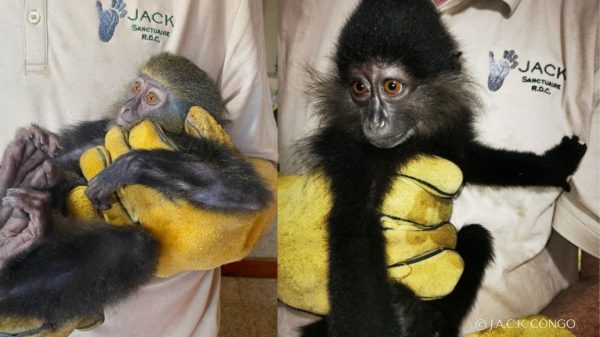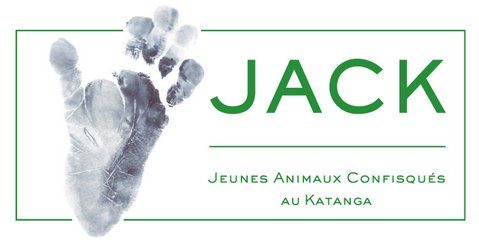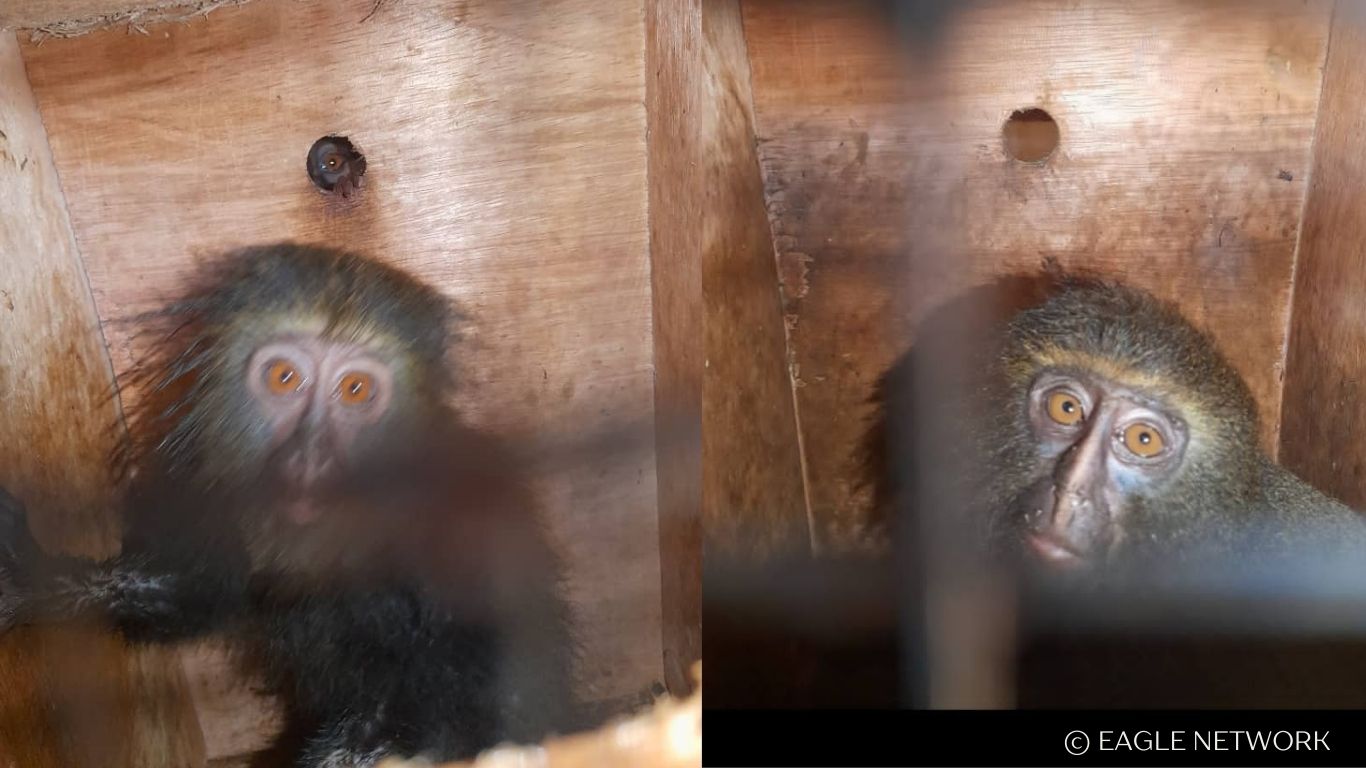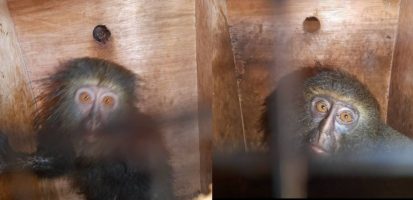Trafficking of African primates from Africa to Asia was thwarted with confiscated animals repatriated and sent to accredited PASA member sanctuary.
The trafficking of African primates from Africa to Asia has been thwarted thanks to the repatriation of the confiscated animals.
A few days before the end of 2023 and shortly before Christmas, J.A.C.K. welcomed the arrival of rescued monkeys seized in Togo. The animals were confiscated during an anti-fraud operation carried out earlier this month in West Africa. Togolese authorities, in collaboration with wildlife investigation organization EAGLE Network, intercepted 40 monkeys illegally trafficked from the DRC to Thailand. This is the largest international seizure of monkeys in Africa. Two decomposing monkey corpses were found dead in their cages by law enforcement officers in Togo.
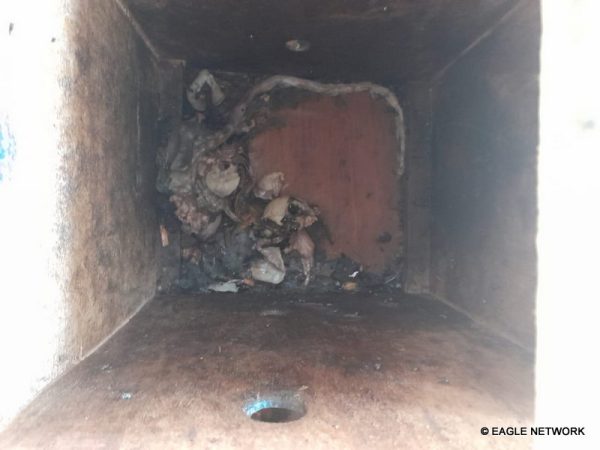
On December 22, the surviving monkeys were welcomed into the J.A.C.K. sanctuary.
This is J.A.C.K.’s second large-scale international primate rescue in recent years. Two years ago, J.A.C.K. received 23 monkeys from the DRC bound for China, intercepted in Zimbabwe as a result of a joint wildlife protection and repatriation effort between the governments of Zimbabwe and the DRC, local conservation organizations and PASA. J.A.C.K. currently cares for over 80 primates rescued from illegal trade.
Franck Chantereau, President of J.A.C.K., said: « We appreciate the collaboration between the governments of Togo and the DRC, who quickly repatriated the animals within days of their seizure. It’s like a Christmas miracle for these vulnerable monkeys, some as young as four months old, who found a safe haven in our sanctuary just before the festive season. The sudden arrival of so many animals is a challenge for us, but when so many lives are at stake and depending on us, we must do everything in our power to provide them with high-quality care. »
He added: « We are grateful to the organizations and individual donors who are helping us through this difficult period, juggling the construction of new enclosures with the urgent medical care of these newly rescued animals. Although the anti-fraud operation has been successfully completed, the hardest part remains, as our sole mission is to nurse the rescued animals back to health. We urgently need your help! «
The traffickers produced CITES permits with fraudulent information, falsely indicating the species and number of animals being smuggled. The traffickers crammed the animals into inhumane, stressful and unsanitary conditions, resulting in the death of several monkeys during transport, while others were injured or in poor condition.
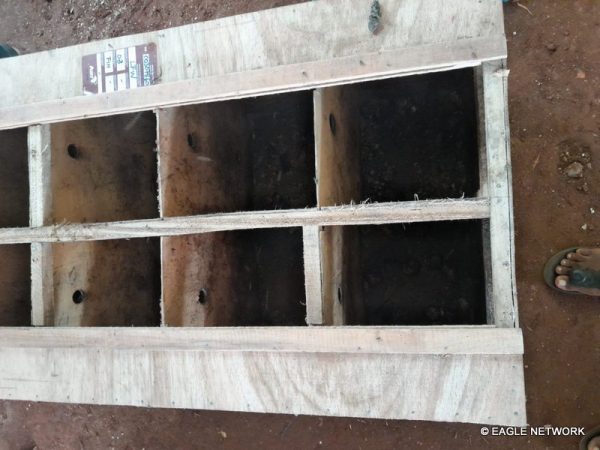
The mixing of dead monkeys with numerous injured monkeys destined for long transport – from the DRC in Central Africa to Togo in West Africa and the final destination in Thailand – raises serious international public health concerns about the potential spread of zoonoses highly dangerous to humans.
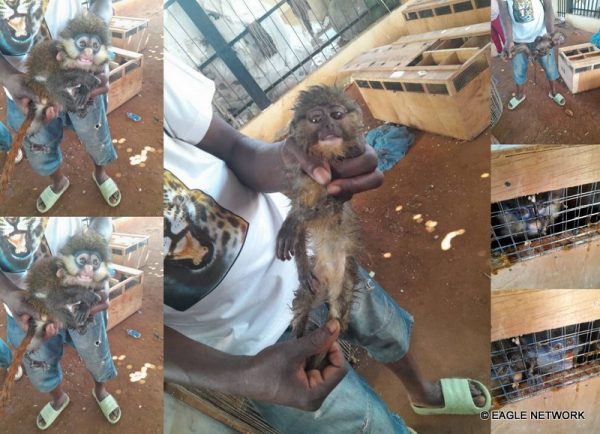
Most of the rescued monkeys that have arrived at J.A.C.K. belong to endangered species such as Black Mangabeys, L’hoest Cercopithecines, Hamlyni Cercopithecines and Lesulas, which have only recently been discovered and are endemic to the DRC. The poaching of these monkeys in the wild represents a threat to the biodiversity of the Congo Basin and shows a worrying trend in the continued exploitation of vulnerable primate species due to the demand for exotic pets.
